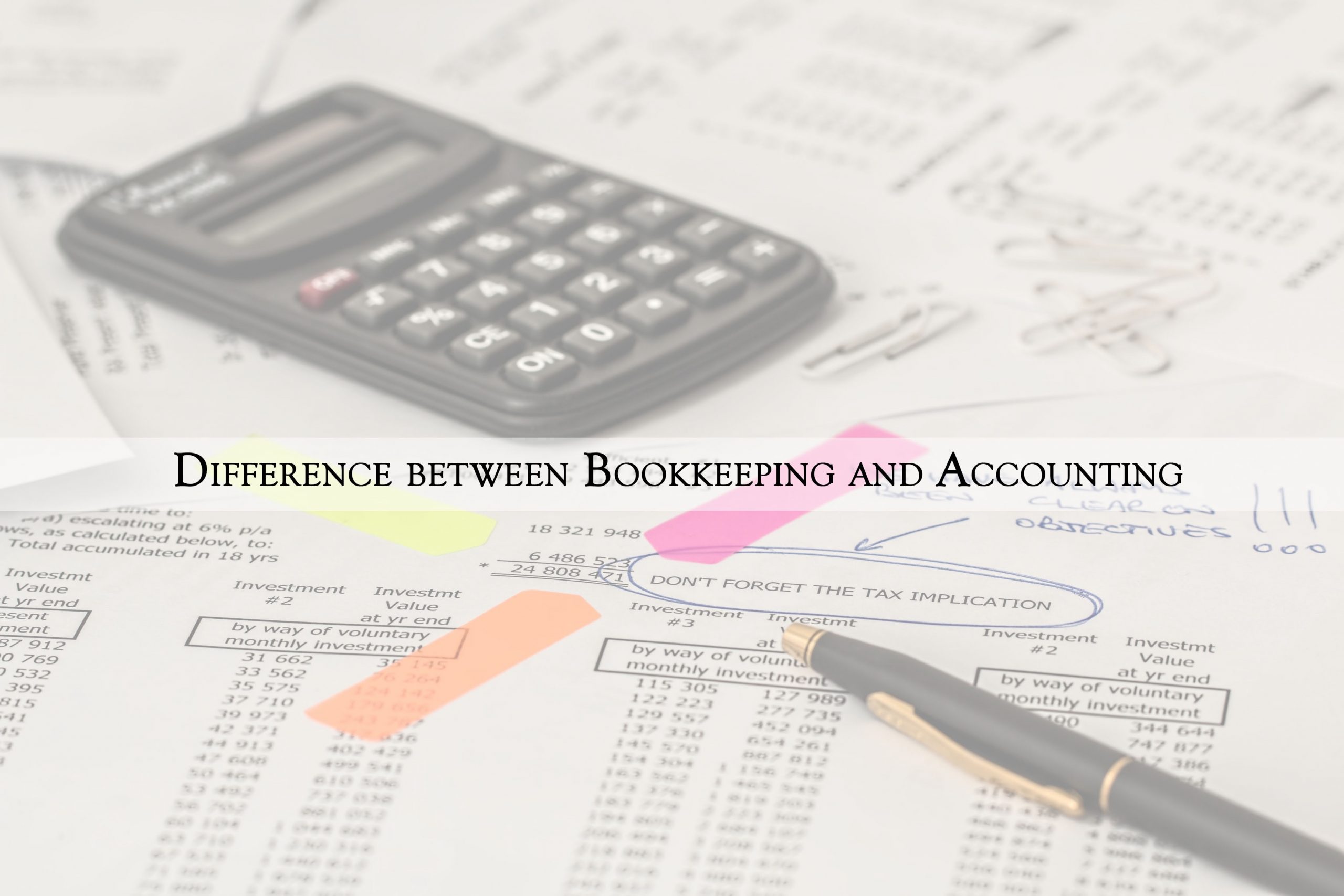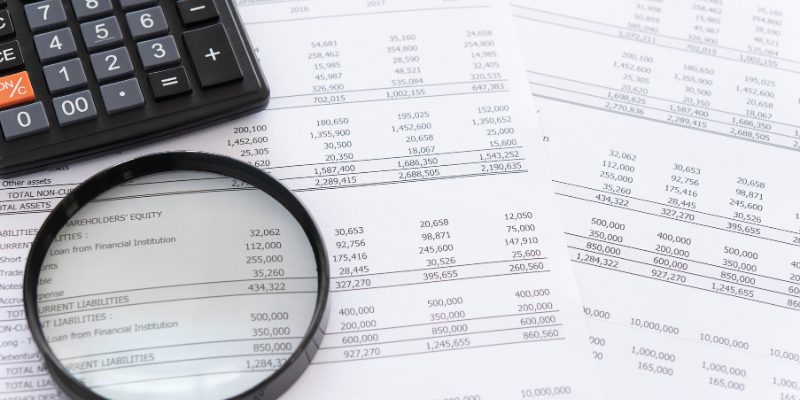Many business owners are unsure about the exact difference between bookkeeping and accounting. While the processes are interlinked, understanding the difference is essential. It can help you hire the right professional and create a healthy financial ecosystem. Today, we are going to talk about the difference between bookkeeping and accounting and also highlight areas where they overlap.

Bookkeeping and Accounting
If you have been using these terms interchangeably, then it’s time you understood how they differ. Many people get confused between these two roles since they work in tandem for the benefit of the business. It all boils down to the financial statements and reporting of the organization. However, there are some stark differences between bookkeeping and accounting. Here is a basic differentiation:
Bookkeeping is about updating the financial records of the business, managing daily transactions, checking bank statements, payroll, etc. On the other hand, accounting is more about supervising the documents that bookkeepers prepare. They analyze the financial records of the organization and provide insights to help the company grow.
While technological tools are blurring the lines between these two roles, understanding them can help you get the best out of your employees.
Comparing Bookkeeping and Accounting
Here is a quick comparison between the roles of a bookkeeper and an accountant:
| Role of a Bookkeeper | Role of an Accountant |
| While there are some certification courses available for bookkeepers, most of them learn bookkeeping on-job. | Accountants typically hold a degree in accounting |
| Being market-aware, bookkeepers can recommend financial software that can be good for your business. They also bring specific knowledge about the best practices in bookkeeping to the table. | Most accountants use specific tools and technology-based solutions to analyze your accounts. Usually, you are unaware of these tools since the accountants use them outside your ecosystem. |
| While they can maintain the books of accounts, they are not qualified to perform attestations or conduct audits. | Accountants with a certification in auditing can certify your financial statements. |
| They know the daily financial transactions of your business. | They have a bird’s-eye view of your financial transactions like trends, problem areas, etc. |
Overlapping of roles
Since both bookkeeping and accounting are related to the financial space, there is some overlap. Both bookkeepers and accountants are experienced in their relative fields. Therefore, they provide some valuable advice to businesses.
- A bookkeeper can recommend ways to streamline current accounting processes. On the other hand, an accountant can recommend ways to minimize your tax liability.
- A bookkeeper can also help the business in creating a budget. Whereas, an accountant can provide insights on whether the business can implement it or not.
Although their roles seem distinct, a bookkeeper can provide helpful insights to an accountant. Whereas, an accountant can give feedback to a bookkeeper to make the process more efficient.
The impact of technology on Bookkeeping and Accounting
Traditionally, bookkeeping, as the name suggests, was a menial job. Bookkeepers would maintain huge ledgers of different accounts. However, technology has made the process simpler and more streamlined. Bookkeepers can now complete their daily activities quickly, leaving them with more time on their hands to analyze the data and step into an advisory role. They can make excellent advisors since they know the minutest details of the organization’s finances. Many bookkeepers have also started focusing on the technological advancements in the accounting arena and turned into technology consultants.
Accountants are not far behind either. Technology has provided some amazing tools to these professionals. Tax rules have become highly complicated as compared to a few decades ago. Hence, many accountants have started specializing in tax consulting and resolution. Most accountants handle the business, as well as, personal accounts of business owners. This puts them in the perfect spot for becoming financial planners or tax advisors. Combining the two, accountants have started assuming the role of business consultants with a financial perspective.
Do you need them both?
It is evident that as technology blurs the line between bookkeeping and accounting, business owners can find it more difficult to differentiate between the two. However, it is important to remember that each of these functions requires specific experience and knowledge. Hence, while a bookkeeper can offer advice, you need an accountant too. Also, even if modern systems can make bookkeeping simple, an experienced bookkeeper can make a huge difference to your business.
If you are starting a new business, you might be able to handle the bookkeeping functions internally for some time. However, you would need the services and expertise of an accountant. In fact, if the accountant is good, then soon you will realize the need for a bookkeeper too. A successful business is based on having the right people for the right jobs. While during initial stages you might want to cut corners since budgets are usually tight, eventually you need to consider hiring a bookkeeper.
Summing Up
Bookkeeping and accounting are different ways of looking at your company’s accounts. Therefore, hiring both is usually beneficial as you receive a comprehensive set of advice from both. Remember, this is not an either-or scenario. On the contrary, bookkeepers and accountants work best when they work in tandem. We hope that this article helped you understand the difference between the two and the importance they hold for the success of your business. Good Luck!











